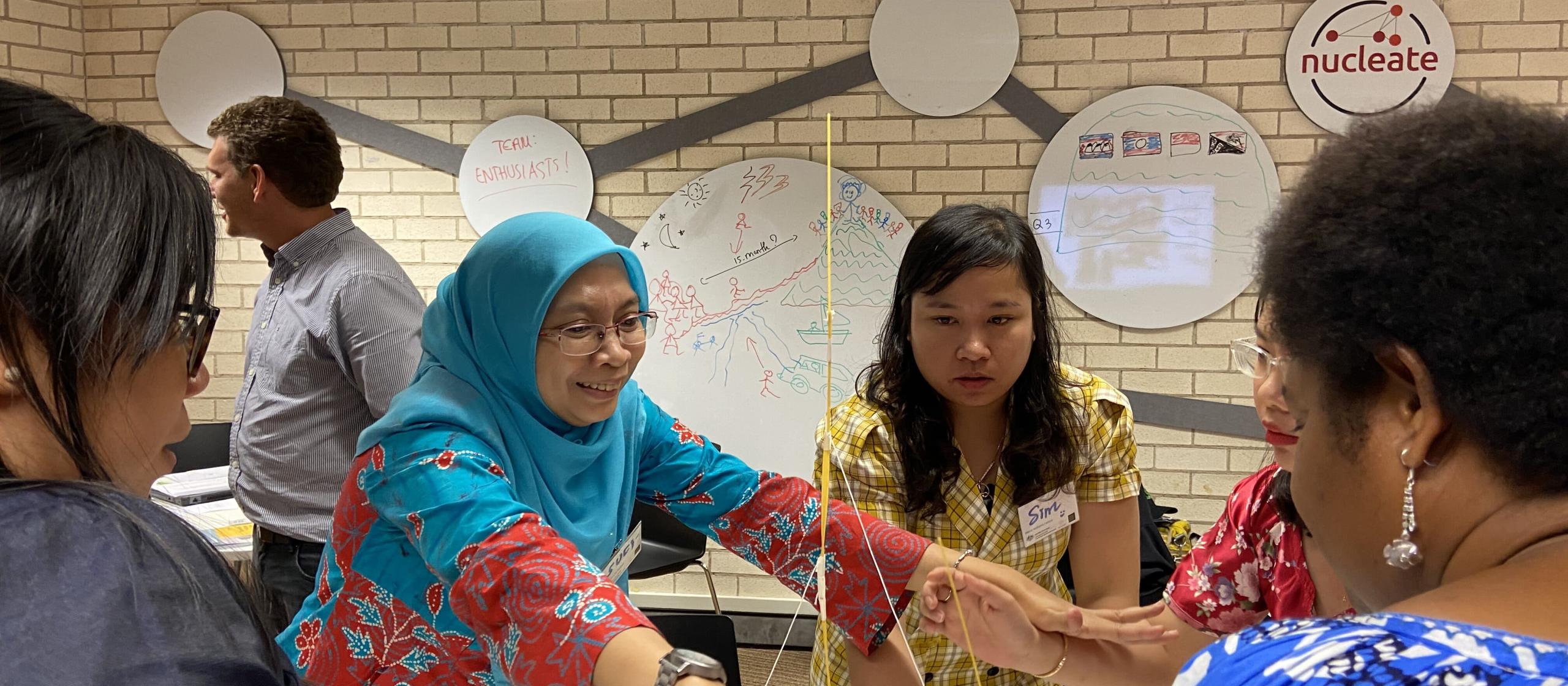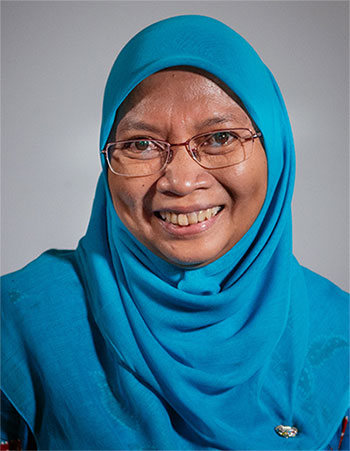- HomeHome
-
About ACIAR
- Our work
- Our people
-
Corporate information
- ACIAR Audit Committee
- Commission for International Agricultural Research
- Policy Advisory Council
- Agency reviews
- Executive remuneration disclosure
- Freedom of information (FOI)
- Gifts and benefits register
- Information publication scheme
- List of new agency files
- Contracts
- Legal services expenditure
- Privacy impact assessment register
- Commonwealth Child Safe Framework
- Benefits to Australia
- Careers
- 40 years of ACIAR
-
What we do
- Programs
- Cross-cutting areas
- Resources
- Where we work
-
Funding
- Research projects
- Fellowships
-
Scholarships
- John Allwright FellowshipScholarships to study in Australia for ACIAR partner country scientists to have Australian postgraduate qualifications
- ACIAR Pacific Agriculture Scholarships and Support and Climate Resilience Program
- Alumni Research Support Facility
- Publications
- News and Outreach
Date released
26 March 2021
Her experience in an ACIAR capacity-building program for women has led Dr Suci Wulandari to explore the potential for women and smallholder farmers to benefit from agricultural value chains that are more sustainable, equitable and climate-ready.
Dr Wulandari is one of 19 alumni from the first cohort of women researchers to take up Meryl Williams Fellowships in 2020.
A researcher specialising in agricultural socioeconomics, Dr Wulandari works with the Indonesian Center for Estate Crops Research and Development, part of the Indonesian Agency for Agricultural Research and Development within Indonesia’s Ministry of Agriculture.
The Meryl Williams Fellowship is an ACIAR capacity-building program for women that aims to redress the gender imbalance in leadership within the Asia-Pacific’s agriculture-related research sectors.
Within six months of commencing the fellowship last year, Dr Wulandari had already presented four single-authored and six co-authored research papers at virtual international agricultural conferences, resulting in an award for best paper and one for best presenter.
We need to develop a specific model for transfer of technology and knowledge to the women... If we want more women to participate in the integrated farming business model, they need to have a more entrepreneurial orientation and capacity-building opportunities.
Dr Suci Wulandari
‘Before I took part in the fellowship, I did not imagine I could do this,’ says Dr Wulandari. ‘The fellowship not only provided training for leadership and capacity building but also provided a mentoring program.’
The mentoring component has enabled Dr Wulandari to connect with 2020 fellows from Indonesia, including Nur Fajrina, who works for East-West Seed Indonesia; Dr Diana Chalil, a senior lecturer at University of Sumatera Utara; and Dr Melinda Moata, a senior lecturer at Kupang State Agricultural Polytechnic. Plus she has developed a connection with Dr Romana Roschinsky from the University of New England, who acts as her mentor.
The fellowship also strengthened her collaboration with Professor Renato Villano from the University of New England, which is delivering the program on behalf of ACIAR. Dr Wulandari has been working with Professor Villano to develop strategies aimed at increasing women’s participation in agricultural value chains.
Smallholder opportunities in integrated farming
A key theme running through much of Dr Wulandari’s research is the development of innovative agribusiness models for integrated farming systems—such as grazing cattle in oil-palm estates, or grazing cattle or small livestock in coffee plantations.
Dr Wulandari sees integrated farming as a more sustainable and equitable alternative to monoculture, or single-commodity agricultural enterprises, for feeding Indonesia’s rapidly growing population of more than 270 million people. Integrated farming also presents new business opportunities for local farm communities.
As coordinator of socioeconomics and business modelling in the PalmCow component of the ACIAR IndoBeef program, Dr Wulandari and team have been developing business models to identify such opportunities, for smallholder farmers in particular.
Cattle in Indonesia are mostly farmed by smallholders who have limited access to land and stockfeed, constraining national beef production. Palm/cattle integration, however, offers cattle farmers access to additional grazing land and the ‘weedy’ understory of oil-palms as forage.
As well as reducing the need for herbicide use in plantations, integrated farming offers other shared benefits including the replacement of chemical fertilisers with manure (which can also be sold as organic fertiliser to external crop growers), and the ‘recycling’ of oil-palm harvesting and processing residues as animal feed.
Dr Wulandari’s interest is not so much in the ‘hard’ science behind integrated farming but in the social dimensions and impacts of research in terms of regulation and policy that will support smallholder farmers with more opportunities to generate income and improve their quality of life. ‘This is why I enjoy being a researcher,’ she adds.
‘In the context of a system, providing technical and technology support must run alongside providing institutional support.’
Gender sensitivity reshapes cultures
While Dr Wulandari says she appreciates the benefits of the fellowship program in helping her develop more effective leadership, communication and management skills, the real game-changer for her was the new perspective she gained on gender-equity issues for women in agriculture.
As she explains, in Indonesia most women face legal and cultural barriers that typically reduce their participation in education, the workforce and land ownership.
She says more needs to be done to facilitate women’s participation in the agribusiness labour force outside the home—for example, by employers offering more flexible working hours to enable women to work.
Ensuring agricultural agencies use gender-sensitive language and awareness in planning and communicating research proposals, methods, surveys, operations and outcomes is also important.
Through the PalmCow project, Dr Wulandari hopes to encourage more women to take up business opportunities—such as marketing and selling manure as organic fertiliser. She has also been collaborating with other sectors to develop business models encouraging women’s participation in the coconut, vanilla, nutmeg and pepper value chains.
‘We need to develop a specific model for transfer of technology and knowledge to the women,’ she says. ‘The model needs to focus on entrepreneurship: how can we help women to become more proactive, take risks, collaborate and network with other stakeholders?
‘If we want more women to participate in the integrated farming business model, they need to have a more entrepreneurial orientation and capacity-building opportunities. If we can develop the capacity of women, it will have a positive effect for their children as well.’
Fellowships during COVID
The Meryl Williams Fellowship program’s lead coordinator, Dr Rebecca Spence from UNE, says she is in awe of the tenacity and dedication shown by all 2020 Meryl Williams Fellows during a year in which the program, like many others, has been severely interrupted by the COVID pandemic.
‘We are engaging in some online activities with the 2020 fellows, particularly looking at leading with resilience because it’s so relevant,’ says Dr Spence.
‘Suci is a really dedicated researcher—research is her passion, and she has been constantly seeking opportunities to collaborate and extend her research networks, as well as bring a gender focus to her work.
‘She has really seized the opportunity.’
Key points
- Meryl Williams Fellow Dr Suci Wulandari is supporting the advancement of women farmers in Indonesia.
- Women in agribusiness need knowledge, support and opportunities to help them adapt to climate change.




